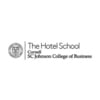Cornell Center for Hospitality Research Reports Focus on Boosting Hotel Revenue

Ithaca, NY, March 15, 2012 - New reports issued by the Cornell Center for Hospitality Research (CHR) at the School of Hotel Administration present two studies aimed at helping hotels improve revenues and profits. One study analyzes the effects of hotels' price shifting strategies relative to competitors. Another shows the favorable outcomes of management integrity. Both reports are available at no charge from the CHR website, at chr.cornell.edu.
CHR Study Shows Effects of Hotel Pricing Strategy on Revenues
A new study from the Cornell Center for Hospitality Research explores hotel price stability and price shifting from 2007 through 2009. The study, "Strategic Revenue Management and the Role of Competitive Price Shifting," examined whether using shifting price strategies (either up or down) over time was superior to maintaining a steady price strategy. While hotels that shifted to a higher pricing band against competitors tended to see greater revenue per available room, a steady price strategy was also quite effective.
"We looked at over 7,000 hotel pricing data points between 2007 and 2009 for this study," said Cathy Enz, a professor of strategy and the Louis G. Schaeneman, Jr. Professor of Innovation and Dynamic Management at the Cornell University School of Hotel Administration. "This was a tough time for the hotel industry, and it took a lot of fortitude for hotels to maintain their pricing strategies. However, those that held tight did better than those who moved to a lower pricing position relative to their competitors in those two years." Enz was joined in the study by Linda Canina, an associate professor at Cornell, and Breffni Noone, an assistant professor at Penn State.
Canina added: "It's important to emphasize that we are talking about the revenue effects of changes in overall pricing strategies, whether moving up or down in relation to competitors. The strategy of shifting to higher prices relative to competitors was the most successful in terms of average annual RevPAR growth over the three years that we studied. By comparison, those who went to a lower pricing strategy saw reduced revenue, compared to competitors. This kind of overall reduction is not the same as targeted pricing promotions, or tactical moves to match competitors' actions."
Cornell Study Shows Financial Benefits of Management Integrity
When Cornell's Tony Simons analyzed the differences in performance in a group of 76 Holiday Inn properties, he found a remarkable connection. The managers with the highest financial performance also earned the highest integrity scores from their employees. Based on those results, Simons, an associate professor at the Cornell School of Hotel Administration, was able to calculate the bottom-line value of integrity, which he calls the "integrity dividend."
In a new Industry Perspectives paper from the Cornell Center for Hospitality Research, Simons confirms his quantitative findings with commentary from industry leaders in many industries. The paper, "The Integrity Dividend: How Excellent Hospitality Leadership Drives Bottom-Line Results," is available at no charge from the Center for Hospitality Research.
"I was initially astonished at the nearly direct connection between a manager's integrity and a hotel's bottom line," said Simons. "But it makes sense. Integrity means that you do what you say you will do. So, when leaders offer clear direction and behave consistently, employees take notice. Integrity of this kind permeates an organization to create an effective culture. In turn, we see growing employee trust and commitment, greater amounts of discretionary service behavior, and lower employee turnover. All of this points to greater customer satisfaction."
Simons's research is detailed in his book, The Integrity Dividend: Leading by the Power of Your Word, published by Jossey-Bass. Simons concludes: "I maintain that building impeccable personal integrity should be a foundation for any efforts at effective leadership development. This is not all it takes to lead-but no leadership is possible without it."
About the Center for Hospitality Research
The purpose of the Center for Hospitality Research is to enable and conduct research of significance to the global hospitality and related service industries. CHR also works to improve the connections between academe and industry, continuing the School of Hotel Administration's long-standing tradition of service to the hospitality industry. Founded in 1992, CHR remains the industry's foremost creator and distributor of timely research, all of which is posted at no charge for all to use. In addition to its industry advisory board, CHR convenes several industry roundtables each year for the purpose of identifying new issues affecting the hospitality industry.
Center Members: Accenture • Access Point Financial, Inc. • Barclaycard US • Cvent • Davis & Gilbert LLP • Deloitte & Touche USA LLP • DerbySoft • Four Seasons Hotels and Resorts • Fox Rothschild LLP • Hilton Worldwide • Host Hotels & Resorts • Hyatt Hotels Corporation • IDeaS Revenue Solutions • InterContinental Hotels Group • Jumeirah Group • Marriott International • NTT DATA • Preferred Hotels & Resorts • priceline.com • PwC • The Rainmaker Group • RateGain • ReviewPro • Revinate • Sabre Hospitality Solutions • STR • Taj Hotels Resorts and Palaces • Tata Consultancy Services • Wipro EcoEnergy • Wyndham Hotel Group
Jane Henion
607.255.9780
CHR
